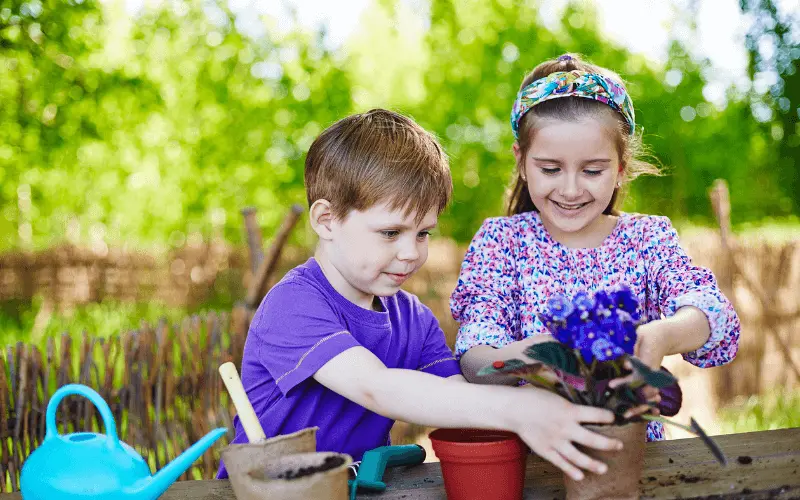How many of us agree that parenting is more than sending a child to school, paying the fees, providing food and medical attention? Genuine parenting involves more than that. Helping a child become confident, realize his or her unique abilities and attain a positive attitude toward life is also part of parenting.
Over the past few decades, the concept of “growth mindset” became evident. When you dive deeper into this concept, you will find that every individual should endeavor to develop this type of mindset. More so, if parents care about the quality of the children they are raising, helping them develop a growth mindset shouldn’t be taken out of the equation.
What is a Growth Mindset & What Does it Mean to Have One?
After many years of research, Carol Dweck came up with the theory of a growth mindset in 2006 which was later popularized in her book “Mindset: The New Psychology of Success”. The concept of “growth mindset” is truly mindblowing and perhaps a cheap ticket any parent can offer a child.
After her years of research, Dweck, a psychologist presented two mindsets- fixed and growth mindset. These two completely mean different attitudes toward life, one’s capabilities, and exploration. Precisely, people with a growth mindset believe that intelligence, abilities, and other traits can be developed and improved. On the other hand, individuals with a fixed mindset don’t believe so. They think that their intelligence, creativity, and abilities are inherent and can’t be eroded or improved.
As that remains the fact, the concept of mindset goes on to influence our approaches toward failure and success. Individuals with a growth mindset believe that they can work on their weaknesses and become better. These individuals are open to challenges and believe that it’s through effort that they can succeed incredibly in life. With that, they tend not to be frightened by failure and obstacles.
On the other hand, people or children with a fixed mindset believe that they either have it or will never have it. For example, they think that they are good at maths because that’s the way they were born. They are also less likely to take up challenges that may display their weaknesses or lead to failure. For that, they opt for easy techniques or things that guarantee success. So, why should parents foster a growth mindset in kids?
Alters One’s Perspective Toward Failure & Challenges
No one can wake up to call upon problems and difficulties, but life is generally full of them. When children aren’t guided on how to perceive failure and challenges, they are more likely to run away from them. They will look for easy means to attain goals, yet sizeable achievements require hard work, persistence, and perseverance.
With a growth mindset, children are able to see challenges as opportunities and are highly motivated to press on. They also learn to value the process of learning rather than simply targeting the end result.
However, children with a fixed mindset grow up with a perception that challenges are only there to display their weaknesses. In the long run, they affirm that they are who they are and are unable to stretch from their comfort zones.
Tip: As a parent or guardian, try to praise children for their effort. When children are praised for their efforts, it motivates them to take on challenges, and are better positioned to handle difficulties.
Improves Classroom Performance
One of the biggest challenges that teachers face today is children’s mindset. The mindset is everything in learning! Teaching students concepts, and tossing them between classroom tasks and co-curriculum activities isn’t easy. Similarly, to help them comprehend, absorb and remember concepts the mindset has a big role to play.
Learning is a process influenced by self-reflection. When children are able to know that they don’t know everything and are willing to learn, this sets a platform for learning engagement. Despite the complexity of concepts, they put in the effort to actively listen or try new strategies to understand concepts. In the long run, this helps them improve their academic performance and become smarter.
Tip: Try out different teaching strategies and encourage your children to experiment with several learning approaches. This will help them to attain cognitive flexibility and stamina for better academic performance.
Allows a Child to Optimize Abilities
Commonly, we come across people who seem to have abilities for almost everything. For example, they are CEOs, philanthropists, educators, and parents, and we may happen to wonder how they manage.
Besides that, how can a child be good in maths, chemistry, geography, and history? Some parents may believe that such children were born like that, but that may not always be true. Many children are dedicated to seeing themselves perform better in every angle. They only need guidance and that can be through homeschooling or introducing them to interactive learning apps that can help them discover their potential.
Children with a growth mindset believe that their intelligence and abilities aren’t limited. In other words, they can enhance their abilities and intelligence by putting in more effort and embracing challenges. This helps them to become the best version of themselves.
Tip: Encourage your child to take risks and try different learning tactics. This will help them grow up with a mindset that is positive and an attitude of never giving up.
Improves Self-Esteem
Parents can influence kids’ mindsets in many ways. For example, by what they say and their feedback in general. It should be noted that the environments we expose our children to have a big impact on their confidence. Uninvolved parenting styles or non-supportive learning environments are some of the major mediums that instill a negative mindset in kids.
When children aren’t guided during childhood, they fail to realize their abilities. They also become demotivated to explore beyond their comfort zones and this makes them become mediocre.
Tip: Teach your child that it’s okay to be imperfect and one doesn’t need to be perfect at everything. This will help them embrace who they are and focus on areas where they need to improve.
Helps Them to Positively Accept Criticism
People who are afraid of criticism are more likely to settle for less or transform into people pleasers. Although this may seem to be safe for them, this is one of the immediate approaches to killing creativity. Children or individuals with a fixed mindset believe that every criticism is bad and ignore the aspect of “ constructive criticism”.
When kids are helped to develop a growth mindset, they begin to value feedback and criticism. They learn that not everyone’s opinions matter, but they can be leveraged to better themselves.
Takeaway
With all that, a fixed mindset presents a greater danger in the modern world and that’s why
parents must foster a growth mindset in their kids. Although there are no direct approaches to
instilling a growth mindset in kids, parents can utilize a range of mediums to help their children
develop this mindset. It will surely help kids to live a more successful life.











